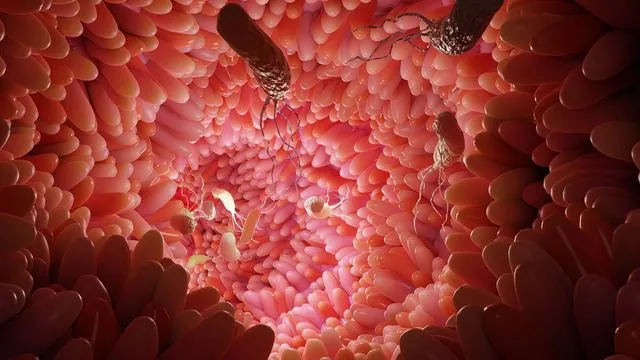
The Shocking Link Between Bacteria and Colon Cancer: Could a Vaccine Be On the Horizon?
2024-12-12
Author: Wei
E. coli: More Than Just Food Poisoning
While many people associate E. coli with foodborne illnesses, the strains in question are prevalent in industrialized nations and are primarily known for causing urinary tract infections and bloodstream infections, rather than gastrointestinal issues. The crux of the problem seems to be the production of colibactin, a toxic molecule that has been shown to cause DNA damage in human cells, potentially leading to cancerous mutations.
History has shown that only a couple of E. coli strains out of the hundreds studied have consistently maintained the gene responsible for colibactin production. This rare characteristic demands significant energy from the bacteria, suggesting that these strains are particularly evolved for survival in a specific niche.
The Cancer Connection: Colibactin Under Scrutiny
Researchers have conducted a comparative analysis of colon, bladder, and prostate cancer rates alongside global data tracking these harmful E. coli strains. The findings are compelling: incidence of colon cancer is markedly higher in countries where these colibactin-producing bacteria are commonly found. In stark contrast, under-resourced nations like Bangladesh and Pakistan report significantly lower cancer rates, alongside a scarcity of these harmful strains.
Dr. Tommi Mäklin, a leading voice in this study, noted, 'Understanding how different strains of E. coli affect human health across the globe will help us piece together a more complete picture of disease risk.'
Promising Prospects for Vaccines and Probiotics
The implications of this research are profound. If colibactin-producing E. coli indeed correlates with increased cancer risk, it raises the tantalizing possibility that vaccines or probiotics could be developed to eliminate or neutralize these bacterial strains, therefore mitigating cancer risk.
Dr. Trevor Lawley from the Wellcome Sanger Institute expressed optimism about future interventions, saying, 'Exploring the relationships between E. coli and cancer could change how we approach disease prevention. This presents a crucial avenue for recognizing how our microbiome impacts our health.'
The Future of Cancer Prevention: Targeting the Microbiome
The potential for developing therapeutic probiotics that could displace harmful bacterial strains is a tantalizing prospect. 'Not all bacterial strains can coexist in the gut, creating a competitive environment,' Lawley explains. Successful interventions might lead to significant public health advances, reducing the prevalence of infections and the necessity for antibiotics, while concurrently lowering the risks associated with colibactin exposure.
As research continues, the hope is that understanding the microbiome’s interactions with our bodies will unlock new approaches to combatting not only colon cancer but a range of health issues associated with harmful bacteria. The quest for vaccines or probiotics that target these specific E. coli strains could herald a new era in cancer prevention.
Stay tuned as this groundbreaking research unfolds—could a colon cancer vaccine become a reality? This could be the breakthrough we've been waiting for!


 Brasil (PT)
Brasil (PT)
 Canada (EN)
Canada (EN)
 Chile (ES)
Chile (ES)
 España (ES)
España (ES)
 France (FR)
France (FR)
 Hong Kong (EN)
Hong Kong (EN)
 Italia (IT)
Italia (IT)
 日本 (JA)
日本 (JA)
 Magyarország (HU)
Magyarország (HU)
 Norge (NO)
Norge (NO)
 Polska (PL)
Polska (PL)
 Schweiz (DE)
Schweiz (DE)
 Singapore (EN)
Singapore (EN)
 Sverige (SV)
Sverige (SV)
 Suomi (FI)
Suomi (FI)
 Türkiye (TR)
Türkiye (TR)